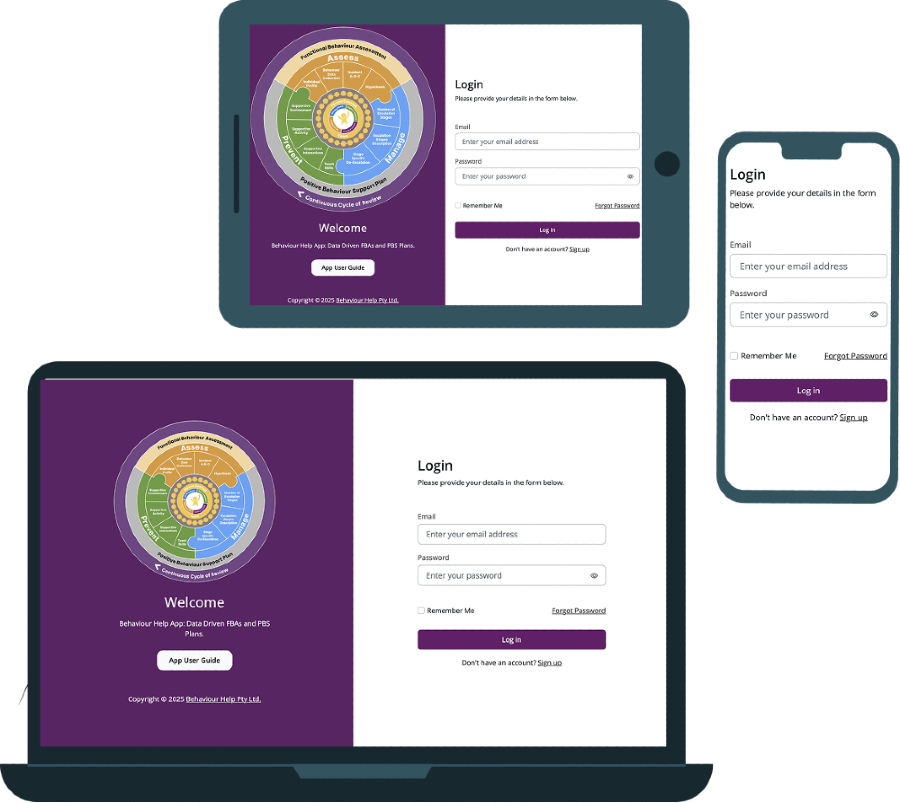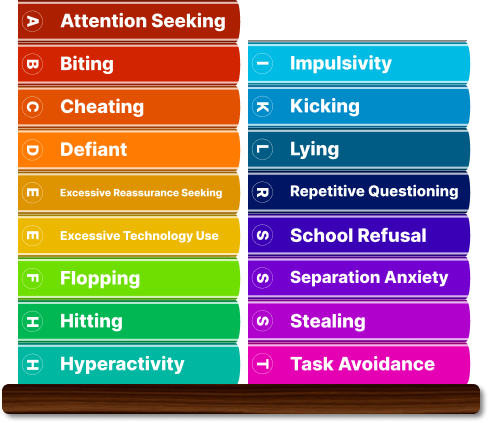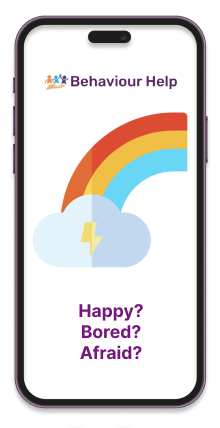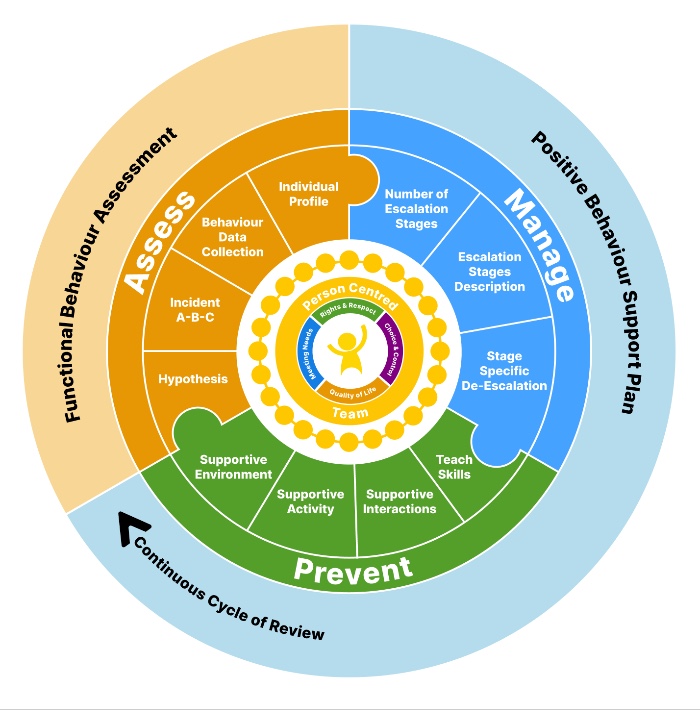Positive Behaviour Support and Behaviours of Concern
People may exhibit behaviours of concern for various reasons and it's important to understand that behaviour is complex and can be influenced by a combination of factors.
At Behaviour Help, we use the evidenced based approach of positive behaviour support to address behaviours of concern.
We advocate the use of Functional behaviour Assessments as part of the Assess - Manage - Prevent cycle of behaviour management. Our behaviour Help App facilitate this process and makes it easy to carry out FBAs in order to write effective positive behaviour support plans and ultimately achieve good outcomes for those exhibiting behaviours of concern.
If left unmanaged, behaviours of concern can escalate into serious issues that may harm the individual or those around them affecting relationships and all aspects of daily functioning in the process.
We offer a professional positive behaviour support resources and services that will equip you with the best strategies to help people of all ages learn positive ways of managing their emotions and behaviours of concern. Our evidence-based, data-driven strategies will help with behaviours of concern, helping you to approach intervention in a more informed way.
Functional behaviour Assessments
Regardless of the emotional and behavioural difficulties children may be experiencing, functional behaviour assessments are a useful tool to assess the reasons for the behaviour of concern occurring and to inform successful interventions.
Examples of problem behaviours or 'behaviours of concern' might include physical aggression, property destruction, verbal aggression, withdrawal, and self-injurious behaviour.
The impacts of problem behaviour at any age can have various consequences, depending on the frequency, intensity (severity) and duration of the behaviours.
Education, work, home life, relationships with family and friends, and even interactions with the legal system are all affected by problem behaviour.
Our positive behaviour support resources will provide you with the best teaching strategies for children of all ages and is suitable for parents, carers, educators, youth, health, and disability professionals.
Informed positive behaviour intervention support can assist individuals with emotional and behavioural difficulties. By providing positive behaviour management, you will be equipped with the tools to address the challenges faced by children with behavioural difficulties.
Behaviour Help Cycle: Assess, Manage, Prevent behaviours of Concern
At Behaviour Help we have created ‘The Behaviour Help Cycle’ to explain the Positive Behaviour Support process step by step.
The team led by the PBS professional uses a person-centered approach which involves the individual being at the center of the decision-making process. By having the individual at the forefront, it enables the team to seek out, understand and plan services based on the individual’s needs, preferences and goals.
Our positive behaviour intervention strategies and available materials will guide and support you through a structured intervention plan. Positive behaviour support methods are evidence driven in order to promote the effectiveness of positive behaviour management for reducing behaviour that challenges.
There are many interventions which purport to reduce behaviour which challenges, however inconsistent or non-evidence-based approaches can worsen behaviour. By ensuring the intervention focuses on evidence-based practice, specific behaviour that challenges can be effectively reduced.
Behaviour Conditions Supported
We write about a wide range of behaviour conditions and mental health disorders. We provide support and behavioural therapy to a diverse range of children and adults.
On our Behaviour Disorders and Conditions page we list in alphabetical order a series of fact sheets aimed at giving concise definitions and support for conditions such as Anxiety Disorder, Developmental Disabilities, Down Syndrome, Intellectual Disabilities and so on.
Parents, educators, and professionals who work with children act with compassion and have an important role in their life. Their approach to addressing the underlying needs of can shape children’s development positively.
Our approach aims to provide you with all the necessary skills and strategies to help children of all ages learn positive ways of behaving and managing emotions, focusing on prevention of the behaviours occurring and reducing the need for reactive strategies with a deep understanding of conditions and disorders that may be underlying the behaviour of concern.
Challenging or Problem Behaviours
We write about a wide range of challenging or behaviour problems. These fact sheets give detailed information defining each problem behaviour and providing lots more context to help understand it fully.
These are a great place to start when thinking about managing an unwanted behaviour in younger children, a teenage child and adults.
Helping children achieve their full potential and emotional well being
We all want children to achieve their full potential. Supporting them with their behaviour will give them the skills to achieve this. Positive behaviour support intervention is child-centred and individualised in order to provide highly targeted support to reduce behaviour that challenges and increase independent skills such as emotional regulation.
Here, at Behaviour Help, we offer a wide range of training, behaviour books, online courses, webinars, workshops, SEL educational videos, pbis apps, and more. Support is provided to you to implement positive behaviour intervention which is specific to individual needs. Enjoy the best benefits with the registered NDIS provider.














